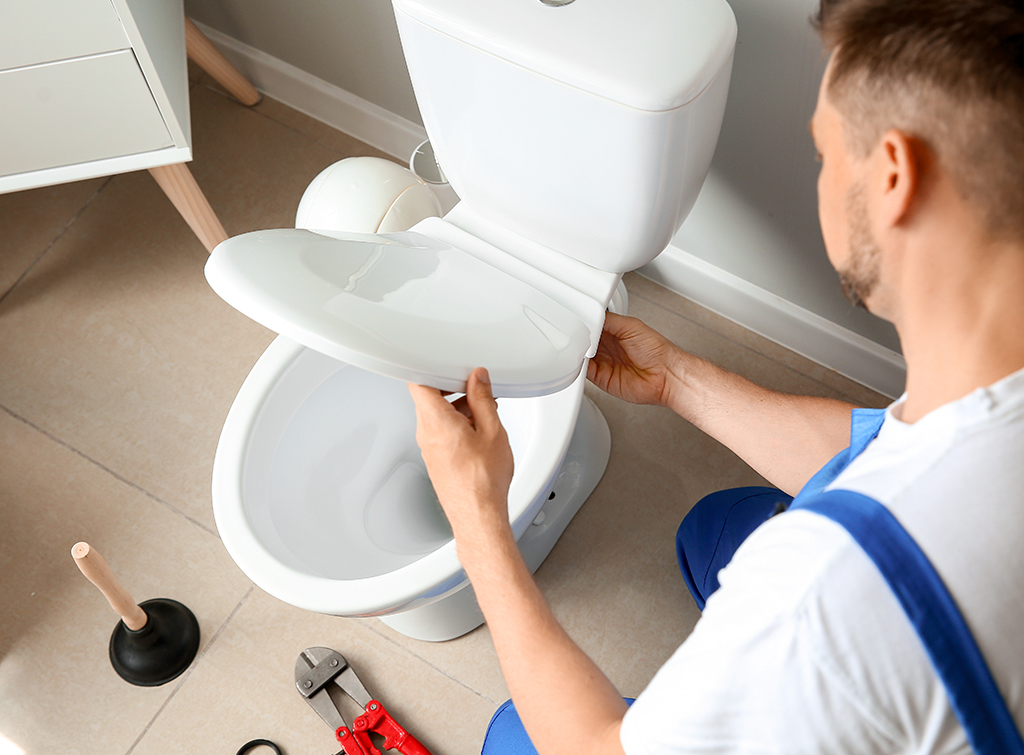Beginner's Guide to Bathroom Plumbing: Top Guidelines
Beginner's Guide to Bathroom Plumbing: Top Guidelines
Blog Article
What're your thoughts with regards to Plumbing Tips for New Homeowners?

For new home owners, understanding and keeping bathroom pipes can save both time and money by stopping pricey issues down the line. Here are some necessary shower room pipes pointers to assist you maintain everything running smoothly.
Familiarize Yourself with the Main Shut-Off Shutoff
Understanding where the major water shut-off valve is located in your home is vital. This permits you to promptly switch off the water system in case of significant leaks or during pipes emergency situations, stopping extensive water damage.
Consistently Check for Leaks
Tiny leakages can bring about large problems. On a regular basis inspect under sinks, around toilets, and near plumbing components for any kind of indications of leakages. Try to find dampness, tiny drips, or rust. Capturing and repairing leaks early can stop more severe damage and save water.
Do Not Ignore Slow Drains Pipes
If your sink or bathtub is draining slowly, it's typically an indicator of a clog forming. Addressing this very early can protect against a total obstruction. Make use of a bettor or a plumbing professional's serpent to clean out debris. Stay clear of utilizing chemical drainpipe cleansers as they can harm your pipelines with time.
Know What Not to Flush
Bathrooms are not garbage disposals. Avoid purging anything besides toilet tissue and human waste. Items like wipes, womanly hygiene products, and cotton swabs ought to be disposed of in the trash to stop clogs and drain backups.
Install Strainers in Drains
Location strainers in your sink and bathtub drains to capture hair and other particles prior to they enter your plumbing system. Cleansing the filters regularly will aid stop build-up and maintain water streaming freely.
Preserve Your Water Heater
Ensure your water heater is readied to a suitable temperature level (commonly around 120 degrees Fahrenheit) to stop hot and minimize power usage. Flush the tank yearly to remove sediment accumulation, which can minimize the performance and life-span of your heating unit.
Upgrade Your Fixtures
If your home has older components, take into consideration updating to a lot more reliable designs. Modern commodes, showerheads, and taps are created to use less water while giving great pressure, which can dramatically decrease your water bill and environmental impact.
Beware with DIY Pipes Services
While it's alluring to handle all home repairs by yourself, beware with pipes. Some issues may require specialist know-how, especially if they include main water lines or drain repairs. Employing a specialist can in some cases be more cost-efficient than do it yourself, specifically if it stops more damages.
Get Ready For Cold Weather
Shield your pipes from freezing throughout cold weather by protecting pipes in unheated areas like basements, attics, and garages. Throughout severe chilly, let cold water drip from faucets served by subjected pipelines to aid prevent cold.
Arrange Regular Upkeep
Take into consideration organizing annual examinations with an accredited plumbing. They can detect concerns that you might miss, such as concealed leaks or damage on pipelines and fixtures. Normal maintenance assists prolong the life of your pipes system and can protect against emergency situations.
Final thought
Understanding and keeping your home's shower room pipes can stop several common issues. By adhering to these essential ideas, you can ensure your washroom remains functional and reliable, saving you money and time in the long run.
Essential Plumbing Tips for Homeowners: Keep Your Pipes Flowing Smoothly
As a homeowner, understanding the basics of your plumbing system can save you time, money, and a lot of headaches. Plumbing issues can range from minor annoyances like dripping faucets to major problems like burst pipes that cause significant damage. This guide provides essential tips to help you maintain your plumbing system and tackle common issues.
Understanding Your Plumbing System
Supply System: Brings fresh water into your home from a municipal source or a well. Drain-Waste-Vent System: Removes wastewater and vents sewer gases outside. Fixtures and Appliances: Includes sinks, toilets, showers, dishwashers, and washing machines. Basic Maintenance Tips
Regular Inspections: Periodically check for leaks, corrosion, and other signs of wear and tear. Look under sinks, around toilets, and near water heaters. Know Your Main Shut-Off Valve: In case of a major leak, you’ll need to shut off the water quickly. Ensure everyone in your household knows where the main shut-off valve is located. Prevent Frozen Pipes: In cold climates, insulate exposed pipes and let faucets drip during extreme cold to prevent freezing. Use Strainers: Install strainers in sinks and tubs to catch hair, food particles, and other debris that can cause clogs. Common Plumbing Issues and Solutions
Clogged Drains:
Prevention: Avoid pouring grease down the drain and use drain screens to catch debris. DIY Fix: Use a plunger or a plumbing snake to clear minor clogs. For stubborn clogs, a mixture of baking soda and vinegar can sometimes help. Leaky Faucets:
Prevention: Replace washers and seals regularly. DIY Fix: Turn off the water supply, disassemble the faucet, and replace worn parts.

Apply Now Report this page